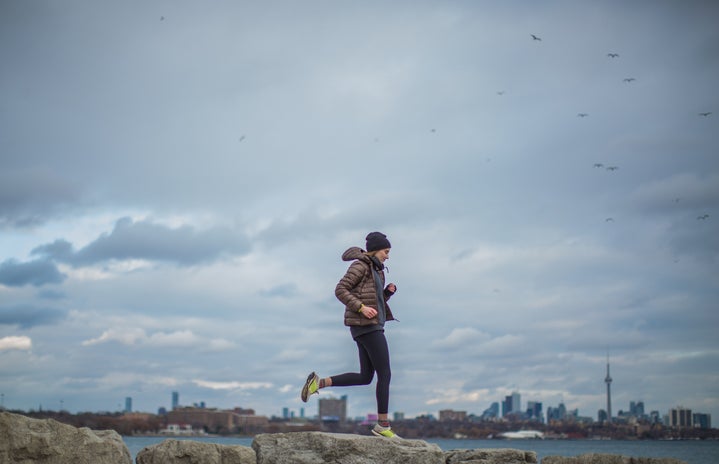If you’re like most college students, you take your love of coffee serious. The only problem is that you may not know when to stop. If you’re experiencing headaches, jitteriness or are extremely tired without, it may be time to take it easy on the caffeine. Maybe your love of lattes is taking a toll on your wallet and you’re trying to cut back. The college culture contributes to caffeine dependency. Long nights of work, homework, student organization activities and hanging out with friends can bring down the quality of your sleep schedule. If you’re drinking multiple cups just to get through the day, here are some tips for cutting back.
Sleep
Getting an adequate amount of sleep in college is tough, but it is so worth it. Try setting an alarm at night to tell yourself when to go to bed. Remember that there’s no shame in the nap game. If you are that tired, taking a short nap is better than going for another cup of coffee or chugging an energy drink.
Limit your caffeine consumption
You don’t need to completely limit your coffee intake, but try drinking one cup less. You can even start off with a smaller goal. Instead of drinking a 10 ounce cup of coffee, opt for an eight ounce cup or order for a medium instead of a large at your favorite coffee shop. You’ll still feel like you’re drinking your normal amount of cups, but even eliminating a little bit each time can help. You can even substitute your drink of choice for one with less caffeine. For example, switch out your latte for a cup of green tea.
Make sure you’re eating enough of a healthy diet
The college diet may be contributing to your caffeine consumption. Some days, it can feel like you don’t have the time to eat and you need a quick, easy and cheap meal you can jam into your packed schedule. Try cooking a healthy meal a few times each week or grab a good snack. Foods such as bananas, apples, brown rice, eggs, oatmeal, yogurt and hummus can give you that extra energy you need.
Exercise
Yes, running is hard, but that extra burst of endorphins can help you power through your day. Doing a strenuous activity may seem counter-productive when you’re falling asleep in class, but it can actually boost your energy levels. You don’t need to go for a five-mile run or take up power lifting to see the effects. Just a short walk around the block can help you power through your day. Exercise may temporarily make you tired, but it actually creates energy in your cells.
Consider if your caffeine habit is a social habit
If you’re like most people, you probably love going to your favorite coffee shop with your friends. It can also be a great way to get out of the house and gives you a better atmosphere for doing homework. You don’t need to give up your favorite study spot, but if you frequently find yourself at coffee shops, try switching to low-caffeine or caffeine-free beverages. If you’re a latte lover, opt for a steamer or tea latte.
Be careful of foods and medications
Some foods, such as chocolate, contain caffeine. Check the ingredient label to make sure you’re not consuming more caffeine than you need to. Also remember to look at medication bottles. Both over-the-counter and prescription medications can have caffeine. Midol, a popular pain reliever for menstrual cramps, has 60 milligrams per caplet. This means that taking two pills has more caffeine than an average cup of coffee.
Seek help if you have trouble sleeping
If you find yourself staying up for long hours at night, it could be a sign that something else is wrong. Factors such as stress, anxiety, depression and nervousness can keep you up. If you have these feelings, try finding a supportive roommate, friend or family member to talk to. You should also seek help from a medical professional if this problem is persistent and is getting in the way of your daily life.
College students love caffeine, but consuming too much can be unhealthy. Having a cup or two each day isn’t bad for you, but be careful not to drink too much.


